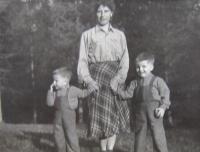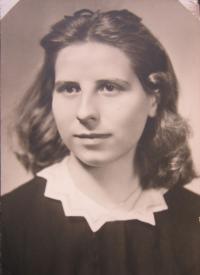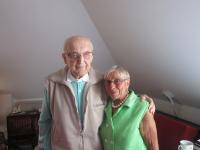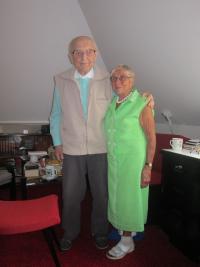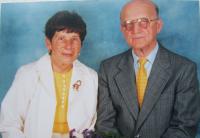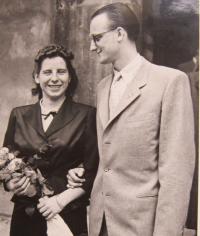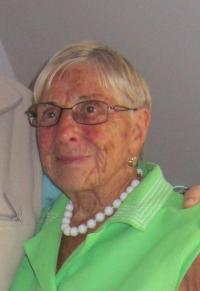We got hit so many times that we began to think differently. But it was not possible to leave the Party

Stáhnout obrázek
Irena Holoubková, née Henkeová, was born September 29, 1928 in Čachovice near Nymburk. She spent a great portion of her childhood in Mladá Boleslav. Her mother tragically died there when Irena was eight years old. She experienced World War Two in Prague. On February 1, 1945, a bomb dropped by an Allied bomber completely destroyed their apartment two weeks after they had moved out. From 1948 she alternately worked as a reporter for the Czechoslovak Radio: at first in Prague, then in Jihlava and later in Žďár nad Sázavou. Together with her husband Luboš they broadcasted from there in August 1968, when Czechoslovakia became occupied by five armies of the Warsaw Pact states. Their radio broadcasting during that time came to represent August 1968 in the Ždár region. For ten days in a row they kept informing the public day and night, calming people down and transmitting their messages to the occupying armies. Their radio station was allegedly one of the last ones in Czechoslovakia that managed to continue broadcasting for so long. Both Irena and her husband were subsequently fired from their jobs for this activity. Irena consequently worked in several other jobs. For her entire life she was striving to help people around her. In the 1970s, for example, Irena and her husband helped to obtain passports and visas for Marie Ležáková and her daughter Eva and enabled them to travel to Canada to her husband Jan. Irena remembers that she felt a great relief after the fall of the communist regime, but she is frustrated from the current situation. Due to the persecution during the normalization era, she and her husband are receiving very low retirement allowance, which is not enough to cover their living expenses in the seniors‘ home in Žďár nad Sázavou. Irena‘s husband is blind and dependent on the help of his wife and the staff in the seniors‘ home.
